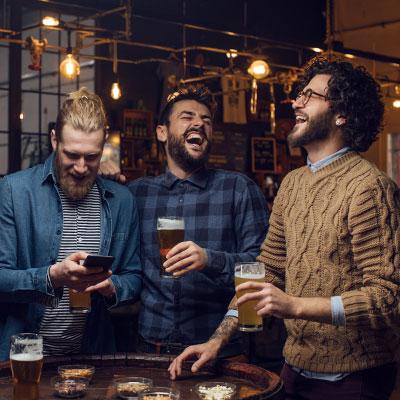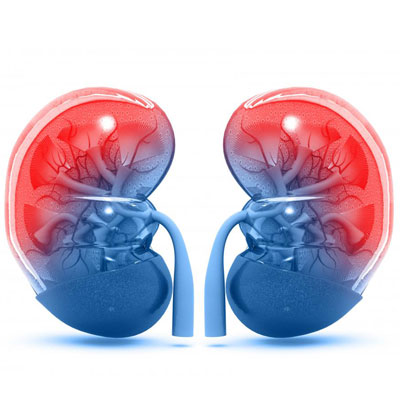How Does Alcohol Affect Your Testosterone Level?
Contents
- Long-term Effects of Alcohol on Testosterone
- Short-term Effects of Alcohol on Testosterone
- Does Drinking Alcohol Lower Your Testosterone?
- Are There Other Factors That Influence Alcohol’s Effect on Testosterone?
- Are Certain Types of Alcohol Worse for Testosterone Level?
- What Do the Studies Say About Alcohol and Testosterone?

Anyone who is health conscious understands that consuming alcohol in more than social amounts is not good for you. Overindulging in alcoholic beverages negatively affects almost every aspect of your health – and that includes your testosterone level.
Alcohol use decreases the amount of testosterone in men. The heavier you drink, the greater the short-term and long-term effects of alcohol consumption will be on your testosterone level.
The relationship between alcohol testosterone is a complex one, and the reasons why alcohol can lower testosterone has to do with the way your body metabolizes alcohol and the impact that has on testosterone production.
Some specific ways that alcohol affects testosterone levels include:
- Alcohol damages specialized cells, known as Leydig cells, in the testes, which produce and secrete testosterone.
- A coenzyme, nicotinamide adenine dinucleotide (NAD+), is used for both alcohol metabolism and testosterone synthesis. When alcohol is consumed in excess, your body’s NAD+ gets tied up helping to metabolize alcohol and sober you up, so it is not available for synthesizing testosterone.
- Drinking alcohol results in the release of certain endorphins. While these endorphins produce pleasant and relaxing feelings, they can also interfere with the production of testosterone.
- Alcohol can increase a stress hormone called cortisol, which is known to decrease testosterone synthesis.
- Alcohol may increase the conversion of testosterone to estrogen in the body.
Long-term Effects of Alcohol on Testosterone
Consuming excessive alcohol has both long-term and short-term impacts on a man’s testosterone level. The long-term effects of alcohol on testosterone production are seen in heavy drinkers. Heavy drinking is considered more than 15 drinks a week for men or more than eight drinks a week for women.
Men who drink heavily are more likely to experience:
- erectile dysfunction
- low testosterone levels
- low libido
It’s thought chronic alcohol misuse damages the Leydig cells in your testes, which are responsible for testosterone production. Alcohol may also interfere with the release of LH, FSH, and GnRH.
Moderate alcohol consumption doesn’t seem to have long-term effects on reproductive health or testosterone levels.
Moderate alcohol consumption is usually defined as no more than one drink for women or two drinks for men in a single day.
Short-term Effects of Alcohol on Testosterone
Even small amounts of alcohol can have immediate and short-term effects on testosterone production.
Studies have shown that testosterone can drop in as little as 30 minutes after alcohol consumption. In one study, healthy men were given a pint of whiskey per day for 30 days, and their testosterone levels were compared to those of men with chronic alcoholism. The healthy men’s testosterone levels began dropping by the third day and reached similar levels to those of the men with alcoholism by the end of the month.
Does Drinking Alcohol Lower Your Testosterone?
Yes, drinking, particularly excessive drinking, can lower your testosterone levels. Research suggests that even “moderate” drinking — one to two drinks per day — may cause a slight reduction in testosterone in men. However, heavy or excessive drinking can have a serious impact on your testosterone level.
Are There Other Factors That Influence Alcohol’s Effect on Testosterone?

Ethanol, the main chemical component in alcohol, is considered toxic to men’s reproductive organs. In large doses, alcohol can reduce testosterone function, sperm count, fertility and can even cause cell damage to the testes. As a result, it is common for men with alcohol use disorders (AUD) to suffer from infertility.
However, because of the different ways that a women’s body makes and uses testosterone, excess drinking by women, and ONLY in women – can actually raise her testosterone levels. That is not a good thing, and it can cause all sorts of problems, such as “maleness” and infertility.
Age is also a factor. Testosterone levels drop as all men age. A man in his 20s – when testosterone levels are naturally at their highest, can likely consume more alcohol before seeing a significant impact on overall testosterone level than a man in his 60s or 70s, who may already be feeling the impact of age-related testosterone decline.
Are Certain Types of Alcohol Worse for Testosterone Level?
Some types of alcohol have a greater testosterone lowering effect than others. For example, Beer often contains phytoestrogen and prolactin—two chemicals that can increase estrogen levels, which in turn decreases testosterone. These chemicals are typically found in hops and barley, two of the more common beer ingredients.
Wine and some liquors, such as bourbon, also contain the estrogen-increasing chemical phytoestrogen. Phytoestrogen naturally occurs in many plants and can increase estrogen levels and reduce testosterone.
What Do the Studies Say About Alcohol and Testosterone?
There have been several clinical studies that confirm the negative impact of alcohol consumption on testosterone levels. A 2007 study of alcoholics with low testosterone found that when these men were put on a program and become sober, their testosterone levels improved dramatically. And the more weeks they spent sober after giving up alcohol, the higher their levels went up.
A 2019 study on substance abuse and low testosterone found that alcohol abuse indeed does indeed contribute to male hypogonadism or low testosterone. The study found that “both testosterone production and spermatogenesis seem to be affected by alcohol abuse in a dose-dependent manner — heavy drinkers are more likely to have a poor testicular function than moderate consumers.”
Now that you know more about the impacts of alcohol on testosterone, why not contact us today and learn more about the many benefits of testosterone replacement therapy.
- Mary Ann Emanuele, MD., and Nicholas Emanuele, MD.
- Taisto Sarkola, C J Peter Eriksson
- Almila Erol, Ada M.-C. Ho, Stacey J. Winham, Victor M. Karpyak
Alcohol and the Male Reproductive System
Testosterone increases in men after a low dose of alcohol
Sex hormones in alcohol consumption: a systematic review of evidence




